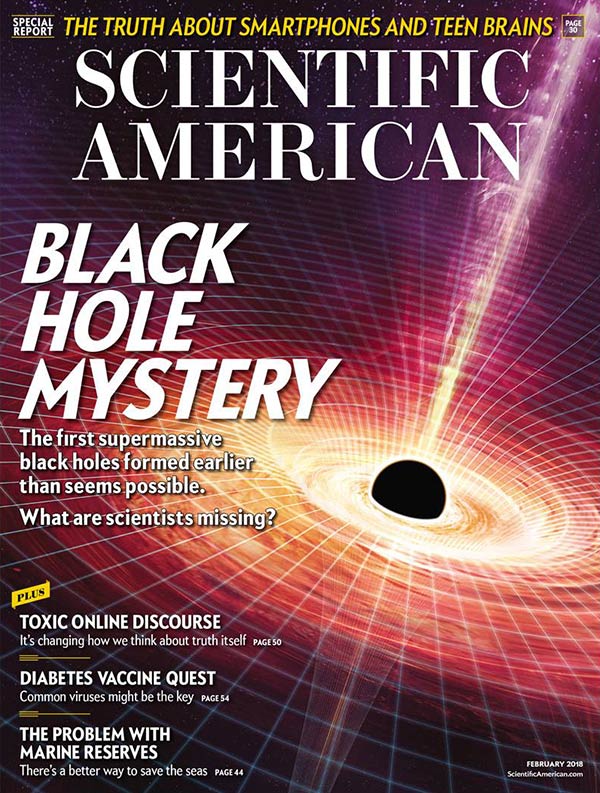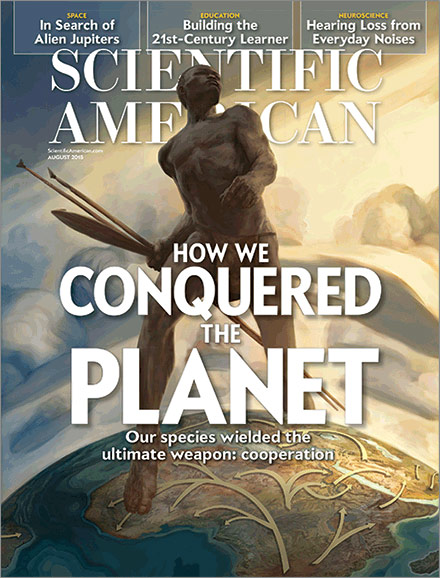Do anomalies prove the existence of God?
This op-ed was originally published on Slate.com as part of a Big Ideas series on the question “What is the Future of Religion” in 2015.
For a quarter century I have investigated and attempted to explain anomalous events that people report experiencing, and I have written about a few of my own, such as being abducted by aliens (caused by extreme fatigue and sleep deprivation), hallucinating inside a sensory deprivation tank, and having an out-of-body experience while my temporal lobes were stimulated with electro-magnetic fields. Most people interpret such experiences as evidence for the supernatural, the afterlife, or even God, but since mine all had clear and obvious natural explanations few readers took them to be evidentiary.
In my October, 2014 column in Scientific American entitled “Infrequencies” however, I wrote about an anomalous experience for which I have no explanation. In brief, my fiancé, Jennifer Graf, moved to Southern California from Köln, Germany, bringing with her a 1978 Phillips 070 transistor radio that belonged to her late grandfather Walter, a surrogate father figure as she was raised by a single mom. She had fond memories of listening to music with him through that radio so I did my best to resurrect it, without success. With new batteries and the power switch left in the “on” position, we gave up and tossed it in a desk drawer where it lay dormant for months. During a quiet moment after our vows at a small wedding ceremony at our home, Jennifer was feeling sad being so far from home and wishing she had some connection to loved ones—most notably her mother and her grandfather—with whom to share this special occasion. We left my family to find a quiet moment alone elsewhere in the house when we heard music emanating from the bedroom, which turned out to be a love song playing on that radio in the desk drawer. It was a spine-tingling experience. The radio played for the rest of the evening but went quiescent the next day. It’s been silent ever since, despite repeated attempts to revive it. (continue reading…)
Comments Off on Frequent Infrequencies
Science reveals our deepest purpose
In a flashback scene in the 1977 film Annie Hall, Woody Allen’s character Alvy Singer is a depressed young boy who won’t do his homework because, as he explains to his doctor: “The universe is expanding…. Well, the universe is everything, and if it’s expanding, someday it will break apart, and that will be the end of everything.” His exasperated mother upbraids the youth: “What has the universe got to do with it?! You’re here in Brooklyn. Brooklyn is not expanding!”
Call it “Alvy’s Error”: assessing the purpose of something at the wrong level of analysis. The level at which we should assess our actions is the human timescale of days, weeks, months and years—our life span of fourscore plus or minus 10—not the billions of years of the cosmic calendar. It is a mistake made by theologians when arguing that without a source external to our world to vouchsafe morality and meaning, nothing really matters.
One of the most prominent theologians of our time, William Lane Craig, committed Alvy’s Error in a 2009 debate at Columbia University with Yale University philosopher Shelly Kagan when he pronounced: “On a naturalistic worldview, everything is ultimately destined to destruction in the heat death of the universe. As the universe expands, it grows colder and colder as its energy is used up. Eventually all the stars will burn out, all matter will collapse into dead stars and black holes, there will be no life, no heat, no light—only the corpses of dead stars and galaxies expanding into endless darkness. In light of that end, it’s hard for me to understand how our moral choices have any sort of significance. There’s no moral accountability. The universe is neither better nor worse for what we do. Our moral lives become vacuous because they don’t have that kind of cosmic significance.” (continue reading…)
read or write comments (23)
Can science help us overcome the terror of existence?
Harvard University paleontologist Stephen Jay Gould, who died in 2002, was a tough-minded skeptic who did not suffer fools gladly when it came to pseudoscience and superstition. Gould was a secular Jew who did not believe in God, but he had a soft spot for religion, expressed most famously in his principle of NOMA—nonoverlapping magisteria. The magisterium (domain of authority) of science “covers the empirical realm: what is the universe made of (fact) and why does it work this way (theory),” he wrote in his 1999 book Rocks of Ages: Science and Religion in the Fullness of Life. “The magisterium of religion extends over questions of ultimate meaning and moral value.”
In part, Gould’s motivations were personal (he told me on many occasions how much respect he had for religion and for his many religious friends and colleagues). But in his book, he claimed that “NOMA represents a principled position on moral and intellectual grounds, not a merely diplomatic solution.” For NOMA to work, however, Gould insisted that just as “religion can no longer dictate the nature of factual conclusions residing properly within the magisterium of science, then scientists cannot claim higher insight into moral truth from any superior knowledge of the world’s empirical constitution.” (continue reading…)
read or write comments (14)
This review of The Brain and the Meaning of Life by Paul Thagard (Princeton University Press, Princeton, NJ, 2010. ISBN 9780691142722) appeared in Science Vol. 328, Issue 5979 in May 2010.
Twice I have spoken at the TED (Technology, Entertainment, Design) conference. Twice I have begrudgingly agreed to the strictly enforced 18-minute talk format—grumbling that “ideas worth spreading” (the TED motto) could not possibly be conveyed in such a constrained format. And twice have I been proven wrong. With discipline and diligence you really can say something of substance in a tight space, and more than 200 million downloads of endlessly entertaining and educational videos prove the principle of pithiness. (continue reading…)
Comments Off on Meaning-Making Neurons
The dualist belief that body and soul are separate entities is natural, intuitive and with us from infancy. It is also very probably wrong
When I was 17 in 1971, I purchased my dream car — a 1966 Ford Mustang — blue with a white vinyl roof, bucket seats and a powerful eight-cylinder 289-cubic-inch engine that could peg the speedometer at 140 miles per hour. As testosterone-overloaded young men are wont to do, however, over the course of the next 15 years I systematically wrecked and replaced nearly every part of that car, to the extent that by the time I sold it in 1986 there was hardly an original piece remaining. Nevertheless, I turned a tidy profit because my “1966” Mustang was now a collector’s classic. Even though the physical components were not original, the essence of its being — its “Mustangness” — was that model’s complete form. My Mustang’s essence — its “soul” — was more than a pile of parts; it was a pattern of information arranged in a particular way.
The analogy applies to humans and souls. The actual atoms and molecules that make up my brain and body today are not the same ones that I was born with on September 8, 1954, a half-century ago this month. Still, I am “Michael Shermer,” the sum of the information coded in my DNA and neural memories. My friends and family do not treat me any differently from moment to moment, even though atoms and molecules are cycling in and out of my body and brain, because these people assume that the basic pattern remains unchanged. My soul is a pattern of information. (continue reading…)
Comments Off on Mustangs, Monists & Meaning




